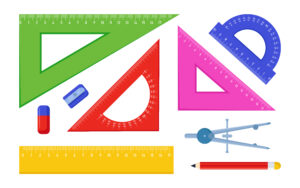Top 10 IGCSE Chemistry Notes Ideas for Effective Study

Preparing for the IGCSE Chemistry exams requires so much material to cover, which can be very overwhelming. To make your revisions easier, it would be nice to have neat and concise notes. Here are the top 10 IGCSE Chemistry notes ideas that would help you organize your study materials effectively and understand all the essential points in a more reliable and effective way.
Concept Maps
Organize your IGCSE Chemistry notes with concept maps for each chapter. A concept map visually links concepts to one another, allowing you to visualize where different concepts are interrelated. For example, when covering “Periodic Table Trends,” diagram how atomic radius, ionization energy, and electronegativity change with periods and groups.
Use Flashcards for Easy Revision
A flashcard is a very good way to memorize key definitions and reactions. There are flashcards you can make for key chemical words such as “electronegativity” or “endothermic reactions.” You can use them to quiz yourself on the properties of elements, compounds, or on chemical equations; these will make it much easier to retain your IGCSE Chemistry notes.
Write Summary for Each Chapter
Write a one page summary of each chapter of your IGCSE Chemistry syllabus. Keep the focus on core concepts and key details: it will make it an easy revision aid and help you recall before your exams. Try to summarize otherwise tricky areas like “Acids, Bases, and Salts” or “Chemical Bonding” in straight-forward simple language.
Highlight Important Equations and Reactions
Chemistry contains many very essential equations and reactions. While revising IGCSE Chemistry, color the equations to draw an eye on them. For instance, use a particular color for oxidation-reduction reactions and another for thermal decomposition. This will enable you to be able to know which to concentrate on when revising.
Represent concepts using diagrams
Use diagrams to convey complicated chemistry ideas. Include labeled diagrams in your IGCSE Chemistry notes for such topics as “Electrolysis,” “Atomic Structure,” or “Chemical Bonding.” Such shall always assist you in understanding and remembering better even various mechanisms that are involved in many areas.
Build a Key Term Glossary
Make use of a glossary of key terms in your IGCSE Chemistry notes. Chemistry is an inherently terminology-rich subject, so you would be well-served to have a glossary to refer to as you move through these words. For example, make sure you include explanations for such terms as “isotopes,” “ionic bonds,” and “molarity.” This will also allow you to understand exactly what each concept means.
Use Past Papers as a Guide When Taking Your Notes
Review of IGCSE Chemistry Past Papers One of the best ways to prepare for the IGCSE Chemistry exam is to review past papers. CKM Academy, set up by Ms Chaitali Mehta, provides free access to IGCSE past papers for all subjects on its website: www.ckmacademy.com. Use these past papers to determine which questions and topics are most commonly asked. Tailor your notes to emphasize these areas, preparing you well for what could come out in the exam.
Mnemonics to Remember Difficult Steps or Products in Chemistry
Try and use mnemonics for remembering complicated processes in chemistry. For example, a mnemonic can be used to remember the reactivity series of metals, like this: “Please Stop Calling Me A Careless Zebra Instead Try Learning How Copper Saves Gold.” This can give your IGCSE Chemistry notes a life and enable you to easily remember as you study.
Organize Your Notes According to Syllabus Sections
Divide your IGCSE Chemistry notes into syllabus sections to ensure that your revision is more structured. CKM Academy is a coaching center established in 2018 with special provision for preparing students on IGCSE and A-Levels, using well-structured and systematic ways of revising. Similarly, categorize your notes under headings like “Atomic Structure,” “Quantitative Chemistry,” or “Organic Chemistry” aligned with the way the syllabus is structured.
You should regularly revise and update the notes
Review and update your IGCSE Chemistry notes regularly. As you continue studying, you will find some new information and clearer explanations that will be added to your notes. It will help you better as the examination date draws closer.
Access the other past papers for IGCSE Subjects
- Additional Math (0606) – Click Here
- Math Extended (0580) – Click Here
- Biology (0610) – Click Here
- Physics (0625) – Click Here
- First English Language (0500) – Click Here
- English as Second Language (0510) – Click Here
- International Mathematics (0607) – Click Here
- Accounting (0452) – Click Here
- Business Studies (0450) – Click Here
- Economics (0455) – Click Here
- Combined Science (0653) – Click Here
- Chemistry (0620) – Click Here
- All Papers – Click Here
Ending Remarks
Effective IGCSE Chemistry notes are part of exam preparation from which one retains critical information and builds more profound knowledge. CKM Academy aims at effective teaching practice combined with solving past papers to make the students excel in their studies. Founded in 2018 by Ms Chaitali Mehta, CKM Academy helps students to sit the IGCSE curriculum with a systematic and innovative teaching methodology. Use concept maps, flashcards, or past papers, and you will be set for your IGCSE Chemistry exams with these note-making techniques. Check out www.ckmacademy.com for access to IGCSE past papers to help prepare you.
Image Reference: Freepik
Disclaimer: All trademarks, logos, and brand names are the property of their respective owners. All company, product, and service names used in this website are for identification purposes only. Use of these names, trademarks, and brands does not imply endorsement.




